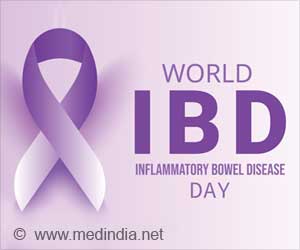According to him, there are multiple factors for the country’s ability to absorb the current wave despite its ferocity.
“The previous two waves have imparted natural immunity in a sizable population. While the protective neutralizing antibody response may be waning after 6 months, the T cell immunity may still offer protection against moderate to severe disease. A sizable proportion of the eligible population has received the mandated two doses of vaccines.
“Hence, vaccines and prior infection (asymptomatic or symptomatic) are contributing to the milder clinical behavior of Covid-19. It is also possible that Omicron, due to its multiple mutations, is not able to penetrate lung parenchyma as delta and earlier variants could. Cell-culture and animal experiments allude to the above hypothesis,” Krishna Reddy said.
Asked if people have learnt to be responsible in their behavior, he said that this is less likely given the social, political, and religious gatherings that are continuing. Crowds gathered for the Sankranti festival is a testimony to the fact that people’s memory continues to be short, said Krishna Reddy.
On whether, assuming that the country absorbs the current wave, pre-Covid normalcy can return, he said that as micron multiplies in millions of people across the world, and Delta and other variants may be surviving in immune-compromised individuals, or some of the earlier variants are multiplying in other animals, the world should expect the new variants to emerge until we reach a stage where the virus does not have enough hosts to multiply.
He said that vaccine development is progressing at a furious pace across the world, and nasal and oral vaccines may reduce viral loads in airways to reduce their infectivity.
“Vaccines targeted at conserved but critical genes may protect against immune evasion. Similarly, monoclonal antibodies may be targeted towards conserved genes. Many of the antivirals act at sites that usually do not undergo mutations. We now have three antivirals (Remedesivir, Praxlovid, and Molnupiravir) that have been approved on emergency use authorization basis. Two of them (Praxlovid and Molnupiravir) are oral drugs. Antivirals and antibodies reduce the duration of infectivity as they act on viruses. This may enable reduction in the duration of isolation and quarantine. Government and the private industry should make investments in vaccine and drug development in anticipation of new variants.”
He believes that facial masks continue to be of benefit against any variant. In addition, they also reduce other respiratory infections and offer protection against pollution-related lung problems. There should be efforts at ongoing education of the public on the benefits of wearing face masks even in the absence of Covid waves.
Krishna Reddy called for taking stock of health systems to learn and take measures to prevent and prepare for the next crisis.
There is a need to assess where the country stands with reference to health systems resilience. There is a need to invest more in public health and primary healthcare to strengthen disease surveillance and rapid response systems.
Given the federal structure with health being dominantly a state subject, there is a need for national health regulation and an agreed, coordinated response system should be arrived at between the Centre and the states, he said.
An institutional mechanism should be put in place for emergency policy decisions guided by scientific evidence. Pre-defined communication strategy should be in place given the importance of right and reliable communication in the face of misinformation flooding through social media channels, he added.
He is of the view that the financial protection system failed in its primary objective of preventing catastrophic health expenses for low- and middle-income people, and these classes should have some form of health financial protection. Even those with financial protection were not able to access intensive care as these are mostly concentrated in metros and large cities. Hence, there is a need to strengthen intensive care units in public hospitals in districts and towns. Policies should attract private investment in hospitals in underserved districts and towns, if the governments are unable to provide quality care, he said.
Source: IANS



